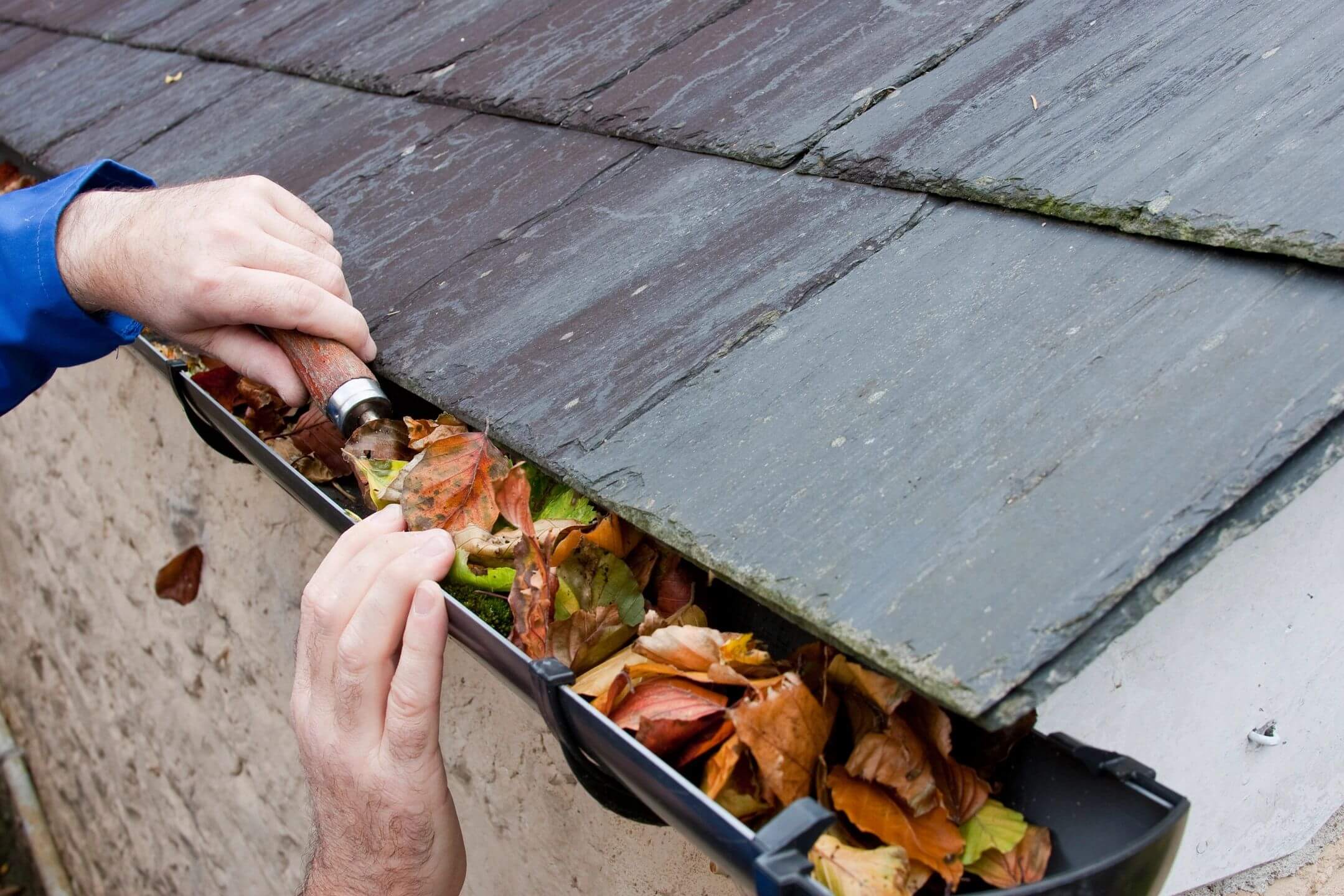Marin County Winter Storm Preparation Guide | Winter Storm Checklist
Marin County winter storm season is right around the corner – are you ready? While winters in Marin County are not as severe as in other parts of the country where residents must contend with snow and months of freezing temperatures, we do receive a fair amount of rain and on occasion extreme cold and some high winds. I advise my friends and clients to take a few precautions in the relatively mild weather of the fall before the winter rains begin. I hope you find the list below helpful as you prepare your home for winter. What did I miss? Please leave your own tips in the comments section at the end of this article.

Marin County Winter Storm Preparation Tip #1: Clean Your Home’s Gutters
This one is fairly obvious so we will get this out of the way. If your gutters are full of leaves, they will not drain properly and may become so heavy they sag and in rare cases detach from your home. Gutters that are clogged often overflow and deposit water where you least want it — next to your foundation.

Marin County Winter Storm Preparation Tip #2 Direct Downspouts Away from Your Home’s Foundation
Most homeowners are pretty good at cleaning their gutters in the fall, but that’s only half the battle. The downspouts from the gutters must direct water away from the foundation of your home. Often times I see this called out in home inspection reports. Water deposited near the foundation can cause settling and even internal moisture / mold issues if part of your home is below grade (cut into a hillside) as so many homes in Marin County are. Your handyman or contractor can attach inexpensive six-inch black piping to your downspouts to direct water away from your home.

Marin County Winter Storm Preparation Tip #3: Insulate Exposed Water Supply Pipes
If you have above-ground water supply piping running to outdoor hose faucets or irrigation systems, have them insulated to prevent freezing. While this rarely happens, parts of Marin County have experienced extended periods of sub-freezing temperatures during extreme weather events. In addition, most modern water supply lines are now copper – an excellent conductor of heat and cold. Insulating that copper line will help keep the cold water coming into your home warmer in the winter and cooler in the summer. It has been a while since Marin County had a hard, sustained freeze but there is precedent. Best to be prepared.

Marin County Winter Storm Preparation Tip #4: Turn Off Irrigation
Before I installed our internet-enabled Rachio irrigation controller that handles this automatically, I couldn’t wait for the first rains so I could turn off the irrigation system. This is a great way to save money, save water in drought years, and prevent your garden from becoming waterlogged during the winter rains. From my morning walks I can tell many forget this important step — I have seen sprinklers running in January right after heavy rains!

Marin County Winter Storm Preparation Tip #5: Check Your Emergency Kit
I will admit, I do not have a formal emergency kit, and I should. I do have a pantry where I keep flashlights, bottled water, emergency food bars and other essentials for emergencies. Whether you have a kit or just a specific area where you store your emergency supplies, check to make sure you have what you need in the event Marin County experiences extended power outages. There are many great articles on what to put in an emergency kit so I won’t repeat here, but you might want to consider a crank radio that also charges your cell phone as well as several cell phone external batteries.
My sister-in-law recently experienced a hurricane in coastal Georgia, and her cell phone was the only connection to the outside world. She ended up using the USB port in her car to charge the phone, which worked well as long as she had plenty of gasoline. Consider buying an inexpensive ($10) external USB battery charger. You will be surprised how quickly your cell phone drains when it’s the only source of information and contact.

Marin County Winter Storm Preparation Tip #6: Trim Trees Before The Winter Winds
Marin winter storms are often accompanied by strong winds. Don’t wait for the storms to hit to care for your trees by trimming dead wood and branches near your home’s roof. That’s when the tree trimmers are extremely busy. Fall is a great time to have your tree service inspect the trees in your yard and advise on pre-storm trimming to keep your home safe. Drought-stressed trees are more likely to topple over. In addition, trees that have not been regularly maintained may be top-heavy or have branches in need of pruning to make them less liable to fall or break.

Marin County Winter Storm Preparation Tip #7: Have Your Chimney Swept and Inspected
Even though Marin County has a relatively-new wood fireplace and wood stove ban in effect for new construction and remodels, there are still a lot of homes with wood burning sources of heat. I love the atmosphere that a roaring fire creates on a cold winter’s night. However, creosote can build up in the chimney and start a very dangerous fire inside the flue that is difficult to extinguish, endangering your home. If you have recently purchased your home, check your home inspection report to refresh your memory on your chimney’s condition. Were cracks observed that should be patched before the first fire? A professional chimney sweep and inspection is a small but worthwhile investment before you begin lighting fires in the winter.

Marin County Winter Storm Preparation Tip #8: Have Your Home’s Heating System Serviced
It’s the first cold morning and you wake up to a freezing home. You walk over to the thermostat and turn it on. Nothing happens. That terrible feeling can likely be avoided with a fall checkup of your heating system, which may not be operating at peak efficiency, or may have hidden problems that will reveal themselves on winter’s coldest evening when you need heat the most.
We have a service contract with our heating / cooling company — they come in the fall and spring to check the heating and air conditioning, respectively. A good checkup should include changing or cleaning the filters, inspecting the heat exchanger on forced air systems, testing line voltages, and making sure the system is safe to run. Read more about home heating system maintenance here. Don’t wait until the first cold snap when service professionals are booked – schedule your checkup today.

Marin County Winter Storm Preparation Tip #9: Make Sure Smoke and Carbon Monoxide Detectors Are Working
Winter means windows are closed and in our more modern air-tight homes gases such as carbon monoxide from improperly maintained heating systems can build up. Also, during the winter heating fires significantly increase according to this article by the Federal Emergency Management Agency (FEMA). Make sure your smoke and carbon monoxide detectors have fresh batteries. Test them regularly during the winter to ensure proper operation (just looking at the little flashing light isn’t enough!)

Marin County Winter Storm Preparation Tip #10: Drain Sediment from Your Home’s Hot Water Heater
Granted, most people don’t ever do this… but this small easy step will greatly extend the life of your water heater and improve its efficiency. Those of you with newer “tankless” water heaters can skip this, but for the rest of us, each winter you should connect a garden hose to the faucet on the bottom of the hot water heater (after turning it off of course) to drain the sediment that naturally collects there. If you haven’t done it in a while, you will be surprised at the sand and “grit” that comes out of your hot water heater. Watch this video for a step-by-step guide on how to clean your hot water heater.

Marin County Winter Storm Preparation Tip #11: Bookmark the PG&E Outage Reporting and Status Website on Your Mobile Phone
We take electricity for granted, but during winter storms this vital necessity may be unavailable for days or in some extreme cases for weeks depending on the severity of the storm and the number of homes affected. The PG&E Outage Reporting and Status Map is a vital resource for reporting outages as well as getting updates on the status of repairs. For an outage, you will see updates as PG&E assesses the situation, assigns crews and then provides estimated time of electric restoration. The map is mobile-friendly and worth bookmarking on your mobile phone. You can also set up a shortcut on your mobile phone’s home page so you can quickly access the map during an outage. This is indispensable during “winter weather events.”

Marin County Winter Storm Preparation Tip #12: Winterize Your Pool
If your home has a swimming pool, you may want to talk to your pool service about preparing it for winter. This may include:
- Adjusting the timer so the pumps run less (or not at all) given lower usage of the pool in winter
- Draining the solar hot water heating system
- Covering the pool
Read this article for helpful tips on preparing your pool for winter.

Marin County Winter Storm Preparation Tip #14: Know Your Town’s Public Works Phone Number
Heavy rains and winds can bring with them a myriad of issues for our roads and infrastructure. If not an emergency, report clogged storm drains, potholes and malfunctioning traffic lights to the appropriate departments so they can be addressed in a timely fashion. Here are some numbers for your reference:
Marin County Roads Department – 415-473-7388
San Rafael Department of Public Works – 415-485-3355
Belvedere Public Works – 415-435-3838
Corte Madera Public Works – 415-927-5057
Fairfax Public Works – 415-458-2370
Larkspur / Greenbrae Public Works – 415-927-5017
Kentfield Public Works – Call Marin County (see above)
Mill Valley Public Works – 415-384-4800
Novato Public Works – 415-899-8246
Ross Public Works – 415-453-1453
Sausalito Public Works – 415-289-4113
Tiburon Public Works – 415-435-7354
Stinson Beach – Call Marin County (see above)
What do YOU do to get your home ready for the Marin County winter storms? Please leave your ideas in the comments section below. I hope you have found this article helpful. If I may be of any assistance with your real estate needs, please don’t hesitate to call me at 415-847-5584.






These tips are so helpful!
Thanks, Judy!
Also people should sign up for emergency alerts from Alert Marin at this website: http://www.marinsheriff.org/services/emergency-services/alert-marin
Great tip, John, thanks!
Thanks for providing tips that can help our readers. Hopefully there will be more blogs like this that are so much fun to read.